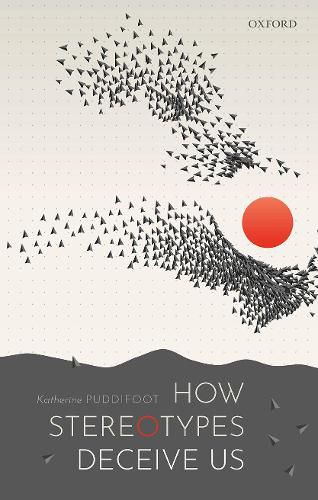Readings Newsletter
Become a Readings Member to make your shopping experience even easier.
Sign in or sign up for free!
You’re not far away from qualifying for FREE standard shipping within Australia
You’ve qualified for FREE standard shipping within Australia
The cart is loading…






Stereotypes sometimes lead us to make poor judgements of other people, but they also have the potential to facilitate quick, efficient, and accurate judgements. How can we discern whether any individual act of stereotyping will have the positive or negative effect? How Stereotypes Deceive Us addresses this question. It identifies various factors that determine whether or not the application of a stereotype to an individual in a specific context will facilitate or impede correct judgements and perceptions of the individual. It challenges the thought that stereotyping only and always impedes correct judgement when the stereotypes that are applied are inaccurate, failing to reflect social realities. It argues instead that stereotypes that reflect social realities can lead to misperceptions and misjudgements, and that inaccurate but egalitarian social attitudes can therefore facilitate correct judgements and accurate perceptions. The arguments presented in this book have important implications for those who might engage in stereotyping and those who are at risk of being stereotyped. They have implications for those who work in healthcare and those who have mental health conditions. How Stereotypes Deceive Us provides a new conceptual framework-evaluative dispositionalism-that captures the epistemic faults of stereotypes and stereotyping, providing conceptual resources that can be used to improve our own thinking by avoiding the pitfalls of stereotyping, and to challenge other people’s stereotyping where it is likely to lead to misperception and misjudgement.
$9.00 standard shipping within Australia
FREE standard shipping within Australia for orders over $100.00
Express & International shipping calculated at checkout
Stereotypes sometimes lead us to make poor judgements of other people, but they also have the potential to facilitate quick, efficient, and accurate judgements. How can we discern whether any individual act of stereotyping will have the positive or negative effect? How Stereotypes Deceive Us addresses this question. It identifies various factors that determine whether or not the application of a stereotype to an individual in a specific context will facilitate or impede correct judgements and perceptions of the individual. It challenges the thought that stereotyping only and always impedes correct judgement when the stereotypes that are applied are inaccurate, failing to reflect social realities. It argues instead that stereotypes that reflect social realities can lead to misperceptions and misjudgements, and that inaccurate but egalitarian social attitudes can therefore facilitate correct judgements and accurate perceptions. The arguments presented in this book have important implications for those who might engage in stereotyping and those who are at risk of being stereotyped. They have implications for those who work in healthcare and those who have mental health conditions. How Stereotypes Deceive Us provides a new conceptual framework-evaluative dispositionalism-that captures the epistemic faults of stereotypes and stereotyping, providing conceptual resources that can be used to improve our own thinking by avoiding the pitfalls of stereotyping, and to challenge other people’s stereotyping where it is likely to lead to misperception and misjudgement.